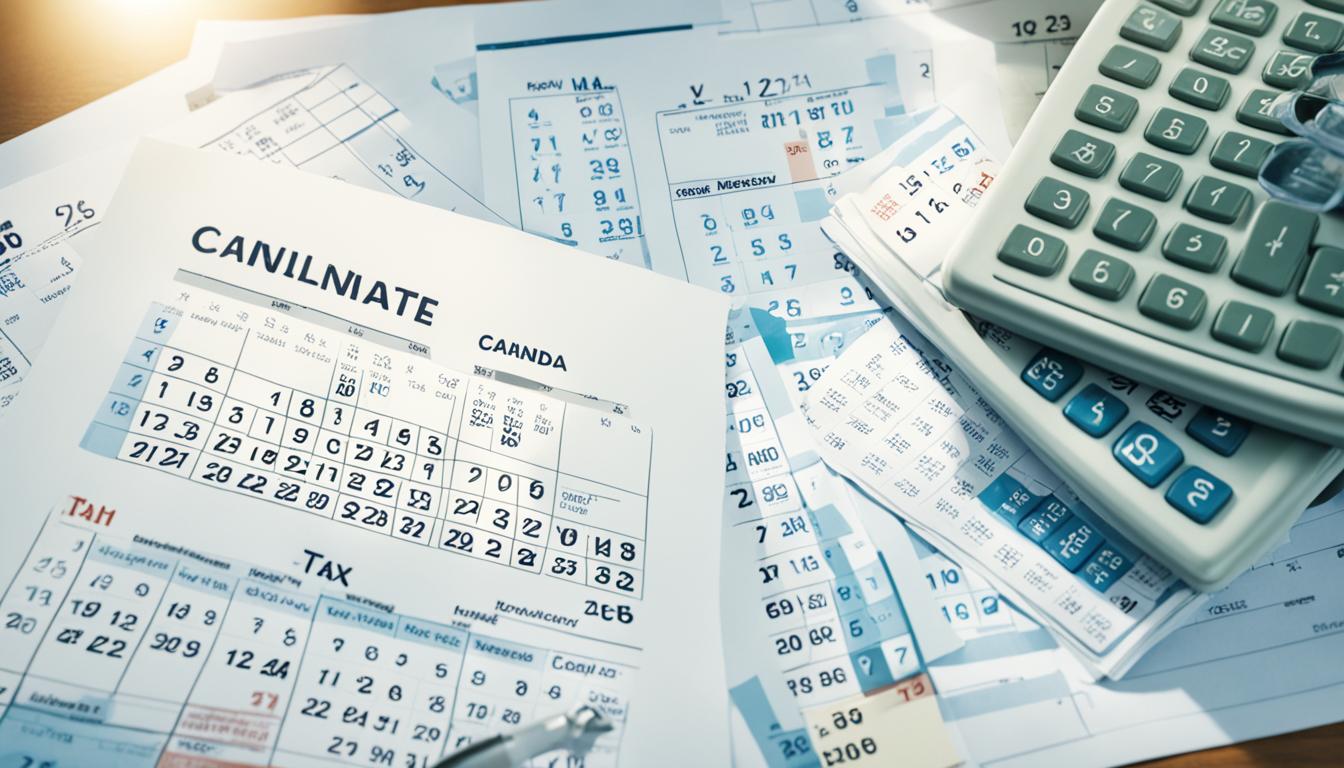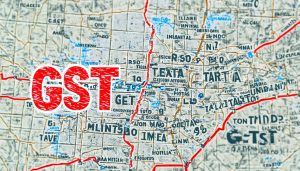The tax season can be a stressful time for many Canadians, as it is essential to meet the tax filing deadline to avoid penalties and interest. Understanding when taxes are due in Canada is crucial for staying compliant with the Canada Revenue Agency (CRA) and ensuring a smooth tax filing process.
In this article, we will explore the key dates that taxpayers in Canada need to know, including the tax filing deadlines, payment due dates, and important dates for specific situations. Whether you are a regular employee, self-employed individual, or a non-resident, it is vital to stay informed about these dates to fulfill your tax obligations.
Let’s dive into the important dates for tax season in Canada and ensure that you are well-prepared!
When Are Taxes Due Canada?
Understanding the tax deadlines in Canada is crucial for all taxpayers to avoid penalties and ensure compliance with the Canada Revenue Agency (CRA). For most taxpayers, the tax filing deadline in Canada is April 30th, while self-employed individuals have until June 15th to file their taxes. It’s essential to pay any balance owing by the tax payment deadline on April 30th to avoid penalties and interest charges. Moreover, specific dates apply to receiving credits and benefit payments from the CRA, such as the GST/HST Credit and Canada Child Benefit. By staying informed about these important dates and meeting the tax obligations promptly, taxpayers can navigate the tax season smoothly and maintain good standing with the CRA.
Important Dates for Taxpayers
To ensure you stay on top of your tax obligations, here are some key dates to remember:
1. Contributions
Deadline to contribute to an RRSP, PRPP, or SPP for the 2023 tax year:
- February 29, 2024
2. Filing Taxes
Deadline to file your taxes for the 2023 tax year:
- April 30, 2024 (for most taxpayers)
- June 15, 2024 (for self-employed individuals)
3. Payments
Deadline to pay any balance owing:
- April 30, 2024
Credits and Benefit Payments
Specific dates for receiving credits and benefit payments from the CRA:
- GST/HST Credit: Quarterly payments starting in January, April, July, and October
- Canada Child Benefit: Monthly payments starting on July 20, 2024
| Tax Year | Contribution Deadline | Tax Filing Deadline | Payment Deadline |
|---|---|---|---|
| 2023 | February 29, 2024 | April 30, 2024 (for most taxpayers) June 15, 2024 (for self-employed individuals) |
April 30, 2024 |
Filing for Special Cases
When it comes to filing your taxes, there are certain special cases that require specific attention and considerations. This section will discuss the filing requirements and due dates for non-residents, individuals with excess contributions, and those filing for a deceased person’s final return.
1. Non-Resident Income Tax Filing
For non-residents of Canada, the filing due date is generally April 30th. However, it’s important to note that this deadline may vary depending on the individual’s circumstances. Non-residents are required to report their Canadian-source income and may need to file a non-resident income tax return.
2. Filing and Payment Due Dates for Excess Contributions
If you have made excess contributions to your Registered Retirement Savings Plan (RRSP), Pooled Registered Pension Plan (PRPP), or Specified Pension Plan (SPP), it’s essential to be aware of the filing and payment due dates. The deadline for filing and paying any taxes owed on excess contributions is March 31st.
3. Filing for a Deceased Person’s Final Return
When a person passes away, their final tax return needs to be filed. The due date for the deceased person’s final return varies depending on the date of death. If the individual died between January 1st and October 31st, the return is due on April 30th. If they died between November 1st and December 31st, the return is due six months after the date of death.
It’s crucial to ensure that the deceased person’s final return accurately reflects their income and deductions up until the date of their passing. Filing the final return helps to settle any outstanding tax obligations and ensure compliance with the Canada Revenue Agency (CRA).
By understanding the filing requirements and due dates for these special cases, you can stay on top of your tax obligations and fulfill your responsibilities to the CRA.
Penalties for Late Filing
Filing your taxes late when you owe taxes can result in penalties and interest. It’s important to be aware of the consequences to ensure compliance with the Canada Revenue Agency (CRA) regulations. Let’s take a closer look at the penalties for late filing and the due dates for installment payments.
Penalties for Filing Taxes Late
When you file your taxes late, the CRA imposes penalties as a way to encourage timely compliance. The penalty for late filing is five percent of the taxes owed, plus an additional percent for each month the return is late, up to a maximum of 12 months. This means that the longer you delay filing, the higher the penalties will become.
Let’s illustrate this with an example. If you owe $5,000 in taxes and file your return three months late, the late filing penalty would be calculated as follows:
| Amount Owed | Penalties |
|---|---|
| $5,000 | $250 (five percent of $5,000) |
| + | |
| $150 (one percent per month for three months) | |
| + | |
| Total | $400 |
As you can see, the penalties can significantly increase the amount owed, so it’s crucial to file your taxes on time.
Penalties for Self-Employed Individuals
For self-employed individuals, it’s important to note that even though the filing deadline is June 15th, any taxes owed must still be paid by April 30th. Failure to pay the taxes owed by the deadline can result in penalties and interest being charged.
Due Dates for Installment Payments
If you make installment payments throughout the year, there are specific due dates to keep in mind. The due dates for installment payments are as follows:
- March 15th
- June 15th
- September 15th
- December 15th
Ensuring that you make installment payments on time helps prevent any interest charges or potential penalties for underpayment of taxes.

By understanding the penalties for filing taxes late and the due dates for installment payments, you can avoid unnecessary financial burdens and maintain compliance with the CRA. Remember to stay organized, file on time, and pay any taxes owed promptly to mitigate penalties and interest charges.
Conclusion
Staying informed about the Canada tax deadline and CRA tax due date is crucial for all Canadian taxpayers. The majority of taxpayers have until April 30th to file their taxes and ensure their Canadian tax payment is made on time. However, self-employed individuals and those with special cases may have different filing and payment due dates.
To avoid penalties and interest, it is essential to pay any taxes owed by the specified deadline. By staying organized and keeping track of important dates, you can navigate tax season with ease and comply with the CRA’s requirements.
Remember, missing the tax filing and payment deadlines can result in penalties. Stay ahead of deadlines, file your taxes on time, and make your Canadian tax payment before the due date to stay in good standing with the CRA.
FAQ
1. When is the tax filing deadline for most taxpayers in Canada?
The tax filing deadline for most taxpayers in Canada is April 30th.
2. What is the deadline for self-employed individuals to file their taxes in Canada?
Self-employed individuals in Canada have until June 15th to file their taxes.
3. When do taxes need to be paid by to avoid penalties and interest?
Taxes must be paid by April 30th to avoid penalties and interest.
4. When can I expect to receive my Canada Carbon Rebate payment if I file my taxes electronically?
If you file your taxes electronically by March 15th, you can expect to receive your Canada Carbon Rebate payment on April 15th.
5. What is the deadline to contribute to an RRSP, PRPP, or SPP for the 2023 tax year?
The deadline to contribute to an RRSP, PRPP, or SPP for the 2023 tax year is February 29, 2024.
6. What is the deadline to file taxes for the 2023 tax year in Canada?
The deadline to file taxes for the 2023 tax year in Canada is April 30, 2024, or June 15, 2024, for self-employed individuals.
7. What happens if I don’t pay any balance owing by April 30, 2024?
If you don’t pay any balance owing by April 30, 2024, you may be subject to interest and penalties.
8. Are there specific dates for receiving credits and benefit payments from the CRA?
Yes, there are specific dates for receiving credits and benefit payments from the CRA, such as the GST/HST credit and Canada Child Benefit.
9. What is the tax filing deadline for non-residents in Canada?
The tax filing deadline for non-residents in Canada is generally April 30th, but it may vary depending on the individual’s circumstances.
10. What is the filing and payment due date for excess contributions to RRSP, PRPP, or SPP?
The filing and payment due date for excess contributions to RRSP, PRPP, or SPP is March 31st.




